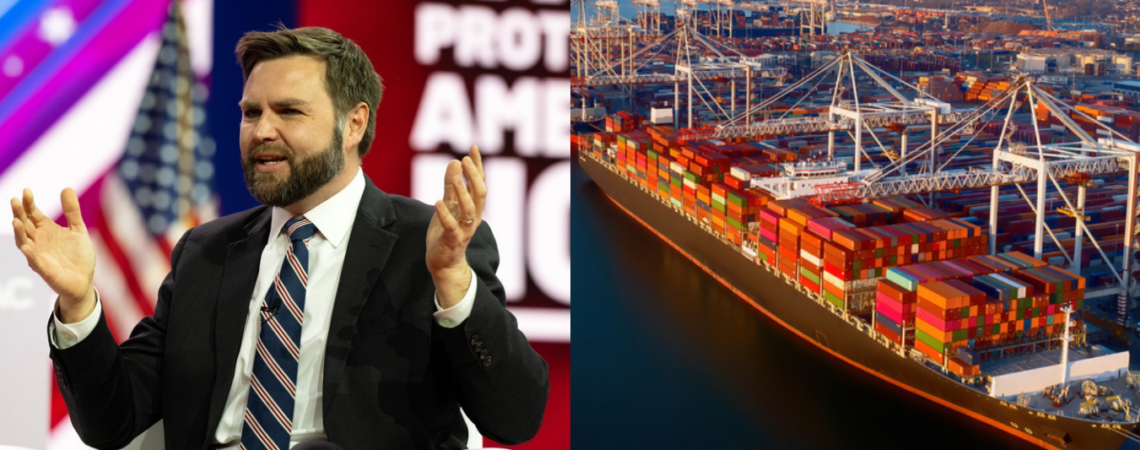In light of Labor Day this past weekend, it’s worth reflecting on the condition of organized labor in this country. And for private sector unions, things aren’t looking good. Not long after World War II, 35% of private sector workers belonged to a union; now, that number is 6.3% (which is actually a slight increase over recent years).
While public sector unions have thrived because the public sector itself has grown, private sector unions have been annihilated by a bipartisan force: globalization. While much of our political debate over organized labor has focused on the effects of Right to Work and related laws, the evidence suggests that these types of reforms have minimal effect. Wisconsin, for instance, is a Right to Work state and Ohio is not, yet workers in Ohio have not fared obviously better (or worse) than those of Wisconsin.
That’s because on a national scale, the jobs that supported a good union wage have become less common or disappeared altogether. Economist David Autor has found that from 1999 to 2011, 2.5 million good manufacturing jobs were lost to import competition from China alone. We’ve also lost millions of jobs to other countries like Mexico. Combined, the effects of globalization have hollowed out America’s industrial core.
These policies have made our country far less self-sufficient economically. Just remember last year, when the Chinese Communist Party threatened America with a loss of critical pharmaceutical ingredients at the height of a global pandemic. But they’ve also destroyed millions of middle-class livelihoods. As Autor also found, when the manufacturing jobs moved out, a host of social problems moved in: family divorce and breakdown, child abuse and neglect and opioid addiction. Ohio suffered more than most states from the decline of manufacturing jobs.
Some blame the disappearance of these manufacturing jobs on unions themselves. And while there are undoubtedly examples of inflexible unions that made it harder for their companies to keep factories in America, many countries have far higher union participation rates but suffered much less of a decline in manufacturing employment.
Far more important than any individual union was the cheap labor overseas and the fact that our government did nothing to stop U.S. companies from exploiting it. Indeed, policymakers often encouraged offshoring through bad trade deals and tax policy.
As we now know, China gives companies who relocate their factories a massive advantage: cheap workers with no expectations and no rights. Some of our biggest corporations (like Apple) have benefited from literal slave labor in China.
That our biggest companies have taken their businesses to places like China is shameful, but our government policy shouldn’t depend on our biggest companies doing the right thing. In fact, during the Trump administration (where one of us served in the Cabinet), our country imposed tariffs on many goods coming into the United States from China. These policies had the effect of offsetting China’s unfair economic advantages and sending a clear signal to U.S. companies that the time has come to bring jobs home and reduce our dependence on China.
We should continue those policies and expand upon them. Instead, some in Congress and the Biden administration seem desperate to turn the clock back. Under influence from many American multinational companies, Treasury Secretary Janet Yellen and others want to reduce or eliminate tariffs that were part of a long overdue effort to combat China’s industrial warfare on the United States.
It would be regrettable if the Biden administration were to cave to this pressure and sell out the very workers it claims to champion. As we’ve learned the hard way over the last decades, there is no more important foundation for American workers than a strong manufacturing base.
Politicians will talk big about fighting China or standing up for the American worker. But unless they’re willing to impose real economic costs on the Chinese and stand up to the American CEOs who work with them, Labor Day will be little more than a reminder that we once lived in a country where the American worker was thriving.
Republican J.D. Vance of Cincinnati is a candidate for the U.S. Senate, and Robert Lighthizer is a former U.S. trade representative who has endorsed Vance’s candidacy.
To read the full opinion as it was published by the Akron Beacon Journal, click here.

